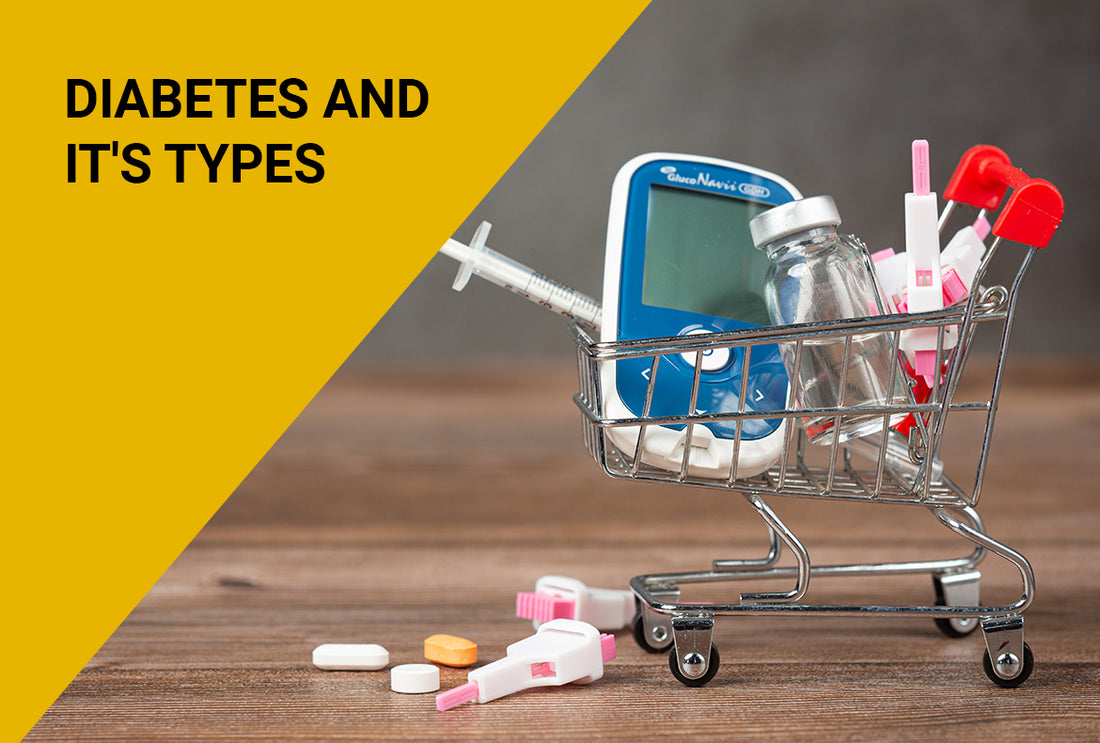Diabetes mellitus is all the more commonly known as diabetes . This is a condition caused by inadequate insulin production by the pancreas. Improper insulin usage by the body can also cause diabetes . Everybody's body produces insulin, which is a chemical component. This increases the sugar in the blood of an individual.
This insulin moves sugar from your blood to parts of the cell to use or store as energy. When an individual has diabetes, it means that their body can't use enough insulin . The body can't, as expected, use the insulin delivered, which is also a reason for diabetes .
When you don't make an effort to control diabetes, it could harm your nerves, eyes, kidneys, and different organs. To further prevent the damage caused by insulin, it is advisable to track the blood sugar level. Uncontrolled diabetes as often as possible causes hyperglycemia. This is otherwise called high blood sugar or raised glucose. This can, over a long period, hurt a wide range of large frameworks, including the neurons and veins.

There are three kinds of diabetes
Type 1 diabetes
Diabetes type 1 is a sickness which is all the more usually known as insulin-subordinate diabetes or adolescent diabetes. The release of insulin in this present circumstance is close to nothing. Insulin is a chemical that the body uses to let glucose (sugar) into cells where energy can be used.
Type 1 diabetes can be caused for different reasons; the chief reason is hereditary elements or some infections. While type 1 diabetes first appears in youth or pre-adulthood, it can likewise strike grown-ups.
Type 1 diabetes doesn't have a known cure. Treatment has to be taken for this type of diabetes. The most common treatment is to take insulin shots or with proper diet and exercise.
The arbitrary excitement of side effects for type 1 diabetes is generally normal and can incorporate the following:
- Feeling excessive thirst than usual
- A tonne of urination
- Kids who have never wet their beds foster the propensity for bedwetting.
- Shedding pounds is a breeze.
- Encountering uneasiness or other emotional episodes exhausted and tired
- Having poor vision

Type 2 diabetes
When the body produces insulin and when that insulin isn't utilised by the body, then this leads to type 2 diabetes. This is otherwise called non-insulin subordinate. It is brokenness in how the body controls and uses sugar (glucose) as fuel. Type 2 diabetes affects over 95% of the individuals who have the illness. This sort of diabetes is predominantly caused by the heftiness of the individual or the absence of any actual work. It becomes quite tiresome to visit the hospital or a health clinic to check the blood sugar content. Hence it is advisable to use a compact glucometer at home to maintain your blood sugar level. This happens when an individual's body becomes impervious to insulin and the development of blood continues to work in the body. Over the course of time, the excess sugar in the blood causes other serious issues as well. These serious problems consist of different neurological and cardiovascular conditions that can further affect the immune system of the body.
You can deal with the state of diabetes by working out, practising good eating habits, and losing weight. To deal with your glucose level or to watch it, you need to ingest a few diabetic medications or seek insulin treatment, proper diet, and exercise.
Although less frequent, the side effects of type 2 diabetes may be similar to those of type 1. since the condition shows fewer symptoms. As a result, even after the problems have arisen, the high level of sugar in the blood cannot be detected quickly.
This type of diabetes was previously only observed in adults, but it is now widely accepted in children as well.

Symptoms
The signs and side effects of type 2 diabetes emerge step by step. Truth be told, you might have type 2 diabetes for quite a long time without acknowledging it. When an individual has type 2 diabetes, the signs and side effects might include the following.
- Strengthened thirst
- Expended thirst and appetite
- Strange loss of weight
- Weakness
- Blurred vision
- Recuperating wounds
- Different contaminations
- Areas of skin that have been stained in the neck and armpits

Gestational diabetes
When gestational diabetes is found while pregnant, it is called gestational diabetes (pregnancy). This sort of diabetes disturbs the appropriate use of the glucose content similar to the other kinds of diabetes. Gestational diabetes can contribute to high glucose levels. This can be unsafe for you and your unborn child. A compact glucometer can be used by pregnant women to track the amount of blood sugar in their blood.
There is uplifting news, regardless of whether any pregnancy issue is disturbing. Proper physical work, an appropriate eating routine, and taking medicine are the steps to be taken to prevent gestational diabetes. Checking your glucose level will be useful for you as well as your child. Since it will stay away from any entanglements during the introduction of the kid.
In the event that you had gestational diabetes while pregnant, your glucose often gets back to normal soon after delivery. Individuals who have gestational diabetes are more inclined to develop type 2 diabetes.
Symptoms
Gestational diabetes, which is pregnancy-related diabetes, has no outward side effects or signs. Except on rare occasions, it may be discovered by the sensation of excessive thirst or frequent urination.

